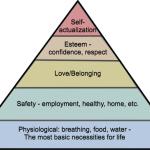
Millions of people worldwide revere the Bible as a sacred text. Christians regard it as the ultimate guide to life. It provides information concerning many different daily life issues, and it even offers insight into the concept of life after death. For believers, the Bible’s teachings on the afterlife offer an eternal hope that transcends the limitations of our mortal existence.
The Bible’s multifaceted perspective on the afterlife encompasses notions of heaven, hell, salvation, and eternal life. By delving into the teachings of the Bible, we can gain a deeper understanding of the mysteries awaiting us beyond this mortal coil.
The Concept of the Afterlife in the Bible
The concept of the afterlife is well detailed in the Bible, offering believers a glimpse into the spiritual realm that awaits them after death. While the precise details of this realm remain mysterious, the Bible presents a consistent message that life continues beyond the grave. It assures us that death is not the end. Rather, it is a transition to a different existence, where our souls dwell in eternal peace if we have trusted in Jesus as our Savior and Lord. On the other hand, if we reject God and His free gift of grace, we will face the consequences of that decision in hell.
Throughout the Bible, there are numerous references to the afterlife, suggesting that it is a fundamental aspect of the human experience. In both the Old and New Testaments, the idea of life after death is defined as an everlasting continuation of our earthly journey.
We’ll look more at what the Bible has to say about heaven and hell in a moment. For now, though, let’s take a look at a story Jesus told about what happens in the afterlife.
The Rich Man and Lazarus
Jesus said:
There was a rich man who … lived in luxury every day. At his gate was laid a beggar named Lazarus, covered with sores and longing to eat what fell from the rich man’s table. …
The time came when the beggar died, and the angels carried him to Abraham’s side. The rich man also died and was buried. In Hades, where he was in torment, he looked up and saw Abraham far away, with Lazarus by his side. So he called to him, “Father Abraham, have pity on me and send Lazarus to dip the tip of his finger in water and cool my tongue, because I am in agony in this fire.”
But Abraham replied, “Son, remember that in your lifetime you received your good things, while Lazarus received bad things, but now he is comforted here and you are in agony. And besides all this, between us and you a great chasm has been set in place, so that those who want to go from here to you cannot, nor can anyone cross over from there to us.”
He answered, ‘Then I beg you, father, send Lazarus to my family, for I have five brothers. Let him warn them, so that they will not also come to this place of torment.”
Luke 16:18-28 (NIV)
In this story, Jesus tells about heaven (depicted as Abraham’s side, or Abraham’s bosom in the Jewish tradition) and hell (or Hades, here in this passage). He wasn’t making something up. He was giving a glimpse of reality – what actually is true.
Heaven is a place of comfort and rest. Hell is a place of torment. They are two distinct places, and once you are in one of them you are there forever, eternally conscious of the consequences of the choices you made here on earth.
Heaven: The Eternal Dwelling Place of the Righteous
Heaven, as we see in the story above, is often portrayed as a place of ultimate bliss and rest. This is a central aspect of the Bible’s perspective on the afterlife. Described as the eternal dwelling place of God (Deuteronomy 26:15, Matthew 6:9), it is a realm of unimaginable beauty, joy, and communion with God. The Bible paints a vivid picture of a place where pain, suffering, and sorrow cease to exist (Revelation 21:4). Instead, believers experience an everlasting state of peace and fulfillment as they walk the streets of gold, surrounded by the gates of pearl and next to the river of the water of life, as described by John in the book of Revelation.
More than that, though, heaven is a place where believers can bask in the presence of God and enjoy the rewards of righteousness. According to the Bible, believers do not enter heaven based on our own merits or good works. Rather, we rely solely on our faith in Jesus Christ as our Lord and Savior (see Ephesians 2:8-9). Through His sacrifice on the cross (see Hebrews 10:11-14), we can attain salvation and gain access to the splendors of heaven.
Hell: The Place of Eternal Torment for Those Who Reject God
In stark contrast to the blissful existence of heaven, the Bible speaks of a place known as hell. It is a realm of eternal suffering, of weeping and gnashing of teeth (Matthew 8:12, Luke 13:28). Jesus spoke more often of hell than He did heaven while He walked the earth. This is a sobering reminder of the consequences of turning away from God. The Bible warns extensively of the torment and separation from God that await those who reject His love and guidance. While the descriptions of hell vary, the overarching message is clear: it is a place to be avoided at all costs, and it should serve as a deterrent from a life of sin and unrighteousness.
While the idea of hell may be unsettling, it serves as a necessary counterpart to heaven, emphasizing the importance of living a life of obedience to God and seeking His forgiveness and restoration when we transgress His perfect laws (see 1 John 1:9).
Biblical Views on Salvation and Eternal Life
Central to the Bible’s perspective on the afterlife is the concept of salvation and eternal life through faith in Jesus Christ, who bridges the gap between humanity and God. Emphasis is placed on the importance of accepting Jesus as Savior, acknowledging His sacrifice on the cross, and repenting of your sins. The Bible assures that because of this salvation we achieve through faith, believers can look forward to an eternity in the presence of God, free from the burdens of sin and death (see Romans 8:2).
Eternal life for the believer, as described in the Bible, is not simply an extension of our earthly existence. Rather, it is a transformation into a state of perfect communion with God (see John 17:3). It is a life of true joy and fulfillment in the presence of our Creator and Lord. Jesus promises His followers abundant life, both now and in the future forever (see John 10:10).
The pathway to eternal life begins with a personal relationship with God. To achieve this relationship, we ask Him to forgive our sins. Then, we seek to live in accordance with His teachings. Through His death and resurrection, Jesus bridges the gap between humanity and God and makes a way for us to travel safely down the road to our heavenly home.
Different Christians Interpretations of the Afterlife
While the Bible offers a general framework for understanding the afterlife, there are various interpretations among the different Christian denominations. These interpretations can range from differing views on the nature of heaven and hell to the specifics of salvation and eternal life. Some denominations emphasize the importance of good works alongside faith, while others place greater emphasis on faith alone. These variations in interpretation reflect the diversity within the Christian faith and underscore the richness of the Bible’s teachings on the afterlife.
While the Bible offers a clear framework for understanding the afterlife, there are different interpretations within Christianity regarding specific details and timelines. Some believe in the concept of an immediate afterlife, where the soul goes directly to heaven or hell upon death (see 2 Corinthians 5:8). Others adhere to the belief in a resurrection of the body at the end of time, where both the righteous and the wicked will be raised to face judgment.
These various interpretations should not overshadow the core teachings of the Bible regarding the afterlife. Regardless of our understanding of the specifics, the overarching message of hope, redemption, and the eternal nature of our souls remains unchanged.
Common Misconceptions about the Afterlife in the Bible
Misconceptions about the afterlife abound, often fueled by popular culture and incomplete understanding of the truths presented in God’s Word. By debunking these misconceptions, we can gain a clearer appreciation of the Bible’s teachings on life after death.
One common misconception is the notion of a physical heaven and hell, as if these realms exist in the same way as our earthly world. However, the Bible presents heaven and hell as spiritual realms, transcending the limitations of our physical existence.
Another misconception is the belief that we can earn our way into heaven. As discussed above, salvation is a gift from God, received when we believe according to His grace. Because of our inborn sin nature, it is impossible for us to ever be good enough to earn God’s favor and buy our way into heaven. Instead, we can choose to believe in and accept the work He has already done on our behalf. In that way, we receive the salvation He is so ready to offer to us all.
How the Bible’s Perspective on the Afterlife Impacts Daily Life and Decision-Making
The Bible’s perspective on the afterlife has profound implications for how we believers should approach our daily lives and make decisions. The knowledge that our actions in this life have eternal consequences compels us to live with integrity, compassion, and righteousness. It encourages us to prioritize spiritual growth, thus cultivating virtues that align with the teachings of the Bible.
The hope of eternal life (see Titus 1:2) also provides solace in times of hardship and inspires us to persevere in the face of adversity. By embracing the Bible’s teachings on the afterlife, we can find guidance and motivation to live a purposeful and meaningful life.
Finding Hope and Comfort in the Bible’s Teachings on Life After Death
The Bible’s teachings on life after death offer believers hope and comfort in the face of mortality. They remind us that death is not the end. Rather, it is the doorway to a greater existence. The assurance of heaven provides solace to those grieving the loss of loved ones, because we know, if they have been saved, death has allowed them to enter a place of eternal peace. They have been given a new life that is infinitely better than the one they enjoyed while on this sin-sickened earth.
Consider Jesus’ conversation with Martha after the death of her brother Lazarus.
When Martha heard that Jesus was coming, she went out to meet him, but Mary stayed at home.
“Lord,” Martha said to Jesus, “if you had been here, my brother would not have died. But I know that even now God will give you whatever you ask.”
Jesus said to her, “Your brother will rise again.”
Martha answered, “I know he will rise again in the resurrection at the last day.”
Jesus said to her, “I am the resurrection and the life. The one who believes in me will live, even though they die; and whoever lives by believing in me will never die. Do you believe this?”
“Yes, Lord,” she replied, “I believe that you are the Messiah, the Son of God, who is to come into the world.” (John 11:20-27, NIV)
While the Bible’s warnings about hell serve as a call for us to repent and remember the importance of living a life that honors God, its teachings about eternal life in Christ remind us that we won’t ever have to experience death. We are always alive in Him and because of Him. By embracing the Bible’s teachings on life after death, we can find solace, hope, and a renewed perspective on the transient nature of our life here on earth.
Embracing the Eternal Hope Offered by the Bible
The Bible offers a profound perspective on life after death, in that it provides believers with an eternal hope that transcends the limitations of our earthly existence. Its teachings on heaven, hell, salvation, and eternal life guide believers in our understanding of the afterlife. In this way, they can shape our daily lives.
By embracing a biblical perspective of the afterlife, we can find solace, comfort, and motivation to live a life of purpose and righteousness. Regardless of the different interpretations of the Bible’s teachings on life after death, common ground can be found in their descriptions of our eternal hope. The Scriptures invite believers to embrace the promise of a glorious eternity in the presence of God.
Embrace the eternal hope offered by the Bible and explore its teachings on life after death. Dive into the sacred text, seek guidance from trusted spiritual leaders, and engage in thoughtful discussions to deepen your understanding. Allow the Bible’s perspective on the afterlife to shape your daily life and decision-making, thus providing you with comfort, hope, and a renewed sense of purpose.
Click here to view a list of some verses to get you started in your continued study.


















